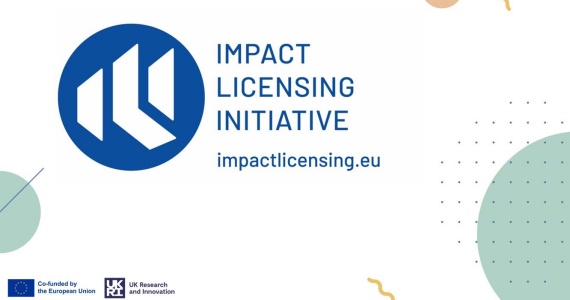New EU Horizon funded project: the Impact Licensing Initiative

The Innovation and Intellectual Property Management (IIPM) Laboratory at the Institute for Manufacturing (IfM) are part of a consortium of five international partners taking part a new EU research project, the Impact Licensing Initiative.
The Impact Licensing Initiative, a new EU-funded project, is aimed at optimising the use of technologies and data to address societal challenges in Europe and beyond. The project will run until July 2027, with a total EU contribution of €1,778,125 under the Digital, Industry, and Space funding program.
Professor Frank Tietze, Head of IIPM at the IfM says, “We are very excited kicking off this new EU Horizon funded project, which sets out to research and promote a more societally compatible licensing framework for technologies. The Impact Licensing Initiative project is at least partly a continuation of our work from the IPACST project, our POINT study for the European Commission and what we did during the pandemic, such as on open patent pledges.”
Project members Frank Tietze and Soujanya Mantravadi attended the kick-off meeting in Brussels in September, marking the beginning of this innovative initiative. Coordinated by the Impact Licensing Initiative in Belgium, the project aims to develop an integrated toolkit, including six instruments and two training modules, along with a network of intermediaries across the EU.
The project has four key objectives:
- Societal value creation: The focus is on aligning technologies with the UN Sustainable Development Goals (SDGs), ensuring that innovations contribute to addressing critical societal and environmental challenges. By prioritizing these goals, the project aims to foster sustainable development and improve quality of life across Europe and beyond.
- A resilient Europe: The recent crises have underscored the need for resilience. This project ensures that Europe can maintain access to crucial technologies and data during emergencies, thus safeguarding public welfare and stability.
- Innovation and research: By providing access to real-world performance data, impact licensing becomes a catalyst for continuous innovation. Technology holders can refine and improve their products based on tangible insights, driving forward research and development.
- Market exploration: Impact licensing opens new avenues for market exploration, allowing technology holders to enter emerging markets with reduced risk. This approach promotes economic growth and the dissemination of beneficial technologies to underserved areas.
This strategic approach will help optimise the use of intellectual property and data for societal benefit while also fostering innovation and research. To find out more:
Visit the project website: https://impactlicensing.eu
See the project outline on CORDIS: https://cordis.europa.eu/project/id/101135720









